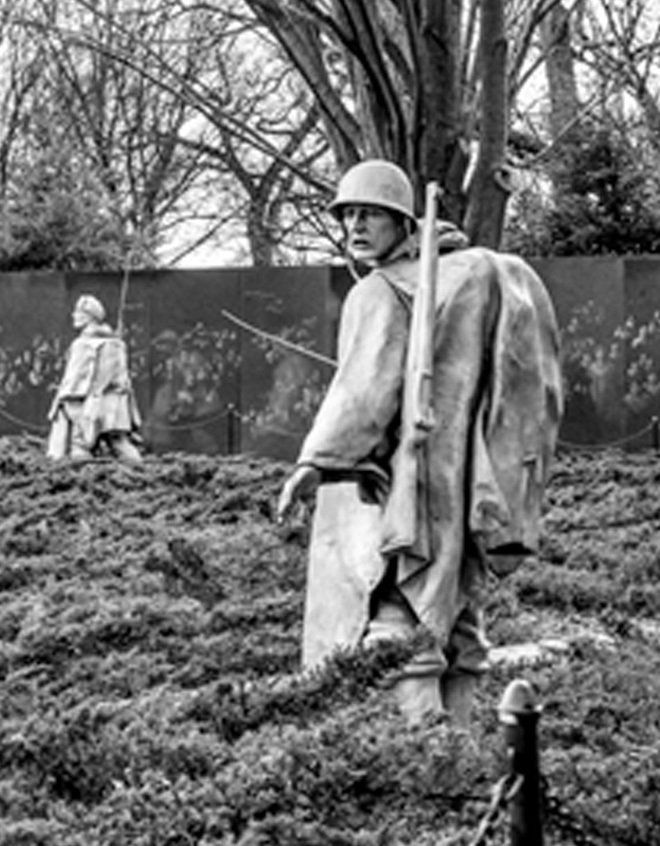Starting Out At A Good Disadvantage

The “Chosin” Few
As a student minister, I knew that what the devil made for evil, God made for good. The Bible says that “all things work together for good to them who love God, to them who are called according to His purpose.” Consequently, there are seemingly bad things in our lives that look like disadvantages but give us the edge in certain situations or circumstances.
A historical example took place during the Korean war. At the Chosin Reservoir, the First Marine Division met the enemy. They called for 60-millimeter mortar ammo to be parachuted down to them because they were running out, and the North Koreans and Chinese were advancing.
Over the radio, they asked for the ammo using the code words ‘Tootsie Roll.’ The radio operator on the other side was not aware of the code words. Consequently, the First Marine Division was shocked when pallets of Tootsie Roll candies dropped from the sky like chocolate manna.
Candy does you no good when you’re being shot at – but that mishap turned into a lifesaver. The soldiers didn’t have any food, so they started eating candies, high in sugar and carbohydrates. The candies gave them energy.
The Marines also learned that they could chew the candy to fix things – like plugging bullet holes in gas lines. It was so cold in Korea at the time that the Tootsie Roll would immediately freeze and harden, sealing the leaky gas lines.
The “mistake” of airdropping pallets of Tootsie Roll candies saved the lives of many of these Marines as well as their equipment, allowing them to back out and return home. The mistake of Tootsie Rolls worked out for the good of these Marines, who became known as The “Chosin” Few.
Something may seem like a mistake or a disadvantage, but it’s something that works for the good.
All Things Working For Good
For me, my eyesight was a hindrance in law school. It would have been so much easier just to be able to read the books, but that wasn’t an option for me. Another hindrance was the software that read the books to me. It didn’t work properly half of the time.
If I needed to find the definition of a word in the reading, it would take me FIVE minutes to find it. But this disadvantage honed my ability to retain massive amounts of information by listening to it. The exercise of my mind, like a bodybuilder or runner exercising their body, to listen and remember, resulted in my mind becoming very agile. The benefits of a quick mind and outstanding memory are immensely beneficial in law school – and after law school in the courtroom.
In a trial, you have three seconds to process an objection when the opposing attorney says, “Objection, that’s hearsay.” In three seconds, my mind has to first recognize what was said as being hearsay. If it is hearsay, is it allowable due to an exception?
There are roughly 50 exceptions regarding hearsay. Today, I have to mentally “scroll” through the exceptions to determine if that one statement that the witness said was allowed. All that recognizing and mental scrolling have to be done in the time that the judge looks at me and asks, “Do you have a response?”
The ability to listen to a lecture from a law school professor and retain a large portion of it benefited me in and outside of law school. Having a quick wit is priceless. I can’t place a value on how immeasurably good it is.
My quick wit and memory have also benefited my ministry. Someone who is a preacher takes what they preach from the Bible. When I read the text, I have to comprehend it. (The King James version is a very detailed and complicated text to read and understand.) Then I turn around to communicate what it says and means to someone else. I need to explain how to apply it. This process is the same as what the law requires.
The law is nothing but complicated texts that you’re analyzing. Then you must turn around to persuade a judge or a jury of your position of law, convincing them that your position is right.
Consequently, my disadvantages, (the hindrance of my eyesight and flawed technology), caused my mind to develop a certain way. Combine those hindrances with my background in ministry and speaking… I find they all worked for the good.
The Practice of Good
Giving opening and closing arguments as a lawyer is similar to giving a sermon as a preacher. My colleagues say, “Give Jimmy a chance to preach to the jury” and that’s what I live for in the courtroom.
It turns out that litigation is my niche. While I can do the research and required writing, I excel at representing my client in the courtroom, whether for a car wreck or a family law matter in criminal court.
A trial requires presenting the complex law that I learned during years of law school as well as the evidence of the case to a jury of 12 ordinary people. People who will return to their job at the water department, auto body shop, or elementary school. In a closing argument, I must concisely present the law and evidence in a way that the layperson comprehends.
When I think about this, it reminds me of the line from the movie Taken where the father of the kidnapped daughter said to the kidnappers, “I don’t have money, but I do have a particular set of skills.” God has blessed me with a skillset and a background that is very complimentary to the field of law. (Not that I didn’t have to work very hard to develop that skill set.) Today, that particular set of skills helps me help other people.
For example, if someone has been hit by an 18-wheeler and there are devastating injuries, yet the company that hired my client denies liability by saying the person was an independent contractor, I have the opportunity to stand up and represent that misfortunate person whose life has been detrimentally affected by the actions of this company.
My purpose is to convince 12 people (the jury) that the company owed a duty to my client, but they breached it. The breach of that duty has affected every step and breath my client will take for the rest of their life. The key word is responsibility.
I also do this for my clients in a child custody setting. In family law, my expertise is to convince a judge that my client is the best parent for raising that child.
For more information, an initial consultation is your next best step. Get the information and legal answers you are seeking by calling (318) 639-9070 today.


